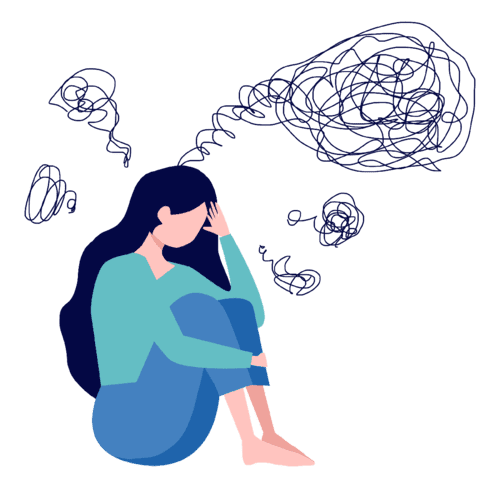Dermatillomania OCD Assessment
Free Dermatillomania OCD Assessment

What is Dermatillomania OCD Assessment?
Dermatillomania, also known as Excoriation Disorder, is a type of Obsessive-Compulsive Disorder (OCD) characterized by compulsive skin picking, leading to tissue damage. Assessment involves evaluating the frequency and severity of skin picking behaviors, impact on daily functioning, and underlying psychological factors. Mental health professionals use standardized tools, interviews, and observations to diagnose and determine the extent of Dermatillomania. Treatment typically includes therapy (such as Cognitive Behavioral Therapy and Habit Reversal Training) and, in some cases, medication. Early assessment and intervention are crucial in managing this condition and improving overall well-being.
Who can benefit from this Dermatillomania OCD Assessment?
The Dermatillomania OCD Assessment can benefit individuals who suspect they may be struggling with compulsive skin picking, also known as dermatillomania. This self-assessment tool is useful for those who experience intense urges to repeatedly pick at their skin, resulting in physical and emotional distress. By answering the assessment’s questions honestly, individuals can gain insights into the severity of their symptoms and determine whether seeking professional help, such as therapy or medical intervention, is recommended. It’s a valuable resource for those seeking to better understand their behaviors and make informed decisions about managing and addressing dermatillomania.
Dermatillomania OCD Assessment Accuracy
Dermatillomania, also known as skin-picking disorder, is often categorized as a body-focused repetitive behavior rather than a strictly OCD-related condition. While it shares some similarities with OCD, such as compulsive behaviors, the assessment accuracy for Dermatillomania may vary. A thorough evaluation by a mental health professional is crucial for accurate diagnosis and treatment planning. Accurate assessment considers the specific symptoms, triggers, and underlying factors to differentiate between OCD and Dermatillomania, ensuring appropriate and effective intervention strategies are applied.
Types of Dermatillomania OCD Assessment
Clinical Interviews:
Mental health professionals, such as psychiatrists, psychologists, or therapists, may conduct clinical interviews to gather information about the individual’s history, symptoms, triggers, and the impact of skin picking on their daily life.
Diagnostic Criteria:
Dermatillomania is diagnosed based on specific criteria outlined in the Diagnostic and Statistical Manual of Mental Disorders (DSM-5). A trained clinician assesses whether an individual’s symptoms meet these criteria.
Self-Report Questionnaires:
Various self-report questionnaires have been developed to assess the severity of skin picking behaviors and related emotional distress. These questionnaires often ask individuals to rate the frequency, intensity, and consequences of their skin picking.
Functional Assessment:
This type of assessment focuses on understanding the function or purpose of the skin picking behavior. It examines the triggers, emotions, and situations that lead to skin picking and the perceived benefits of the behavior.
Observational Assessment:
In some cases, clinicians might observe the individual’s behavior directly to gain a better understanding of the frequency and intensity of skin picking episodes.
Psychosocial Impact Assessment:
This type of assessment evaluates how skin picking impacts an individual’s overall well-being, including their self-esteem, body image, social interactions, and psychological distress.
Handling Dermatillomania OCD Issues
Dermatillomania, also known as Excoriation Disorder or Skin Picking Disorder, is a condition characterized by recurrent, compulsive skin picking that can lead to skin damage and other negative physical and emotional consequences. Handling dermatillomania requires a combination of strategies, including professional help and self-care techniques. Here’s a guide on managing this condition:
- Seek Professional Help: Consult a mental health professional, such as a therapist or psychiatrist, who specializes in treating OCD and related disorders. Cognitive Behavioral Therapy (CBT) and Habit Reversal Training are effective therapies for dermatillomania.
- Identify Triggers: Pay attention to the situations, emotions, and thoughts that trigger your skin-picking episodes. Understanding your triggers can help you develop strategies to manage or avoid them.
- Replace Picking with Alternative Behaviors: Develop healthier coping mechanisms to replace the urge to pick. These could include squeezing a stress ball, deep breathing, or engaging in a creative activity.
- Mindfulness and Distraction: Practice mindfulness techniques to increase awareness of the urge to pick without acting on it. Engage in distracting activities when you feel the urge, such as drawing, writing, or playing a musical instrument.
- Barrier Methods: Use physical barriers, like wearing gloves or bandages, to make skin picking more difficult. This can provide a moment to pause and reconsider the behavior.
- Healthy Skin Care Routine: Establish a regular skin care routine to improve the health of your skin and reduce the urge to pick. This might include cleansing, moisturizing, and using treatments recommended by a dermatologist.
- Stress Management: Since stress can exacerbate dermatillomania, incorporate stress-reduction techniques into your daily routine, such as meditation, yoga, or exercise.
- Visual Cues: Place notes or reminders in areas where you’re most likely to engage in skin picking. These reminders can prompt you to pause and consider your actions.
- Support System: Share your struggles with trusted friends or family members who can provide encouragement, understanding, and accountability.
- Journaling: Keep a journal to track your skin picking episodes, triggers, and any progress you make. This can help you identify patterns and measure your improvements.
- Medication: Consult a psychiatrist to discuss whether medication might be helpful in managing your symptoms. Certain medications, like SSRIs, can be prescribed for dermatillomania.
- Progressive Exposure: Gradually expose yourself to situations that trigger your skin picking urges, while using your coping strategies to resist the urge. Over time, this can help desensitize the anxiety associated with picking.
- Professional Collaboration: If your dermatillomania is related to or worsened by skin conditions, coordinate care between mental health professionals and dermatologists.
Remember that overcoming dermatillomania takes time and persistence. Be patient with yourself and celebrate even small victories along the way. Professional support is crucial, so don’t hesitate to reach out to mental health experts who can guide you through evidence-based treatments.

